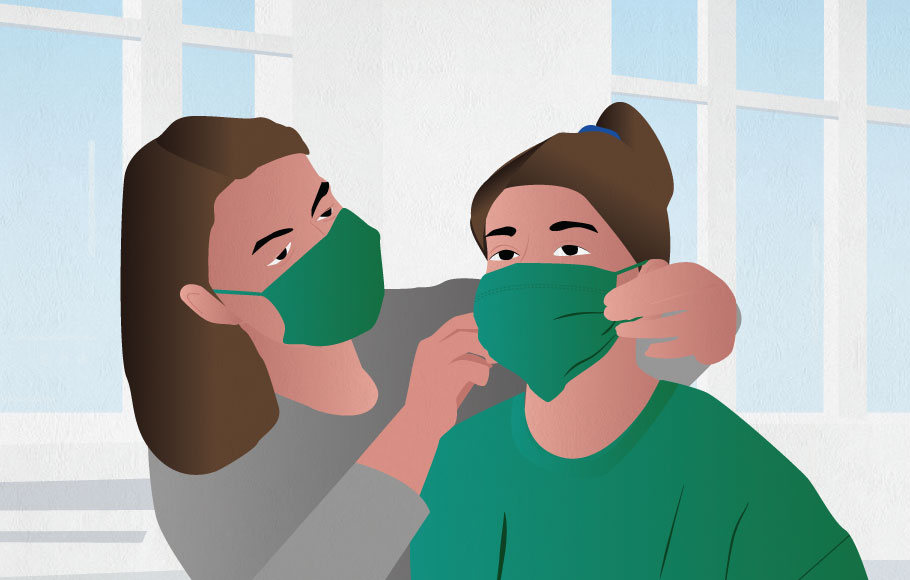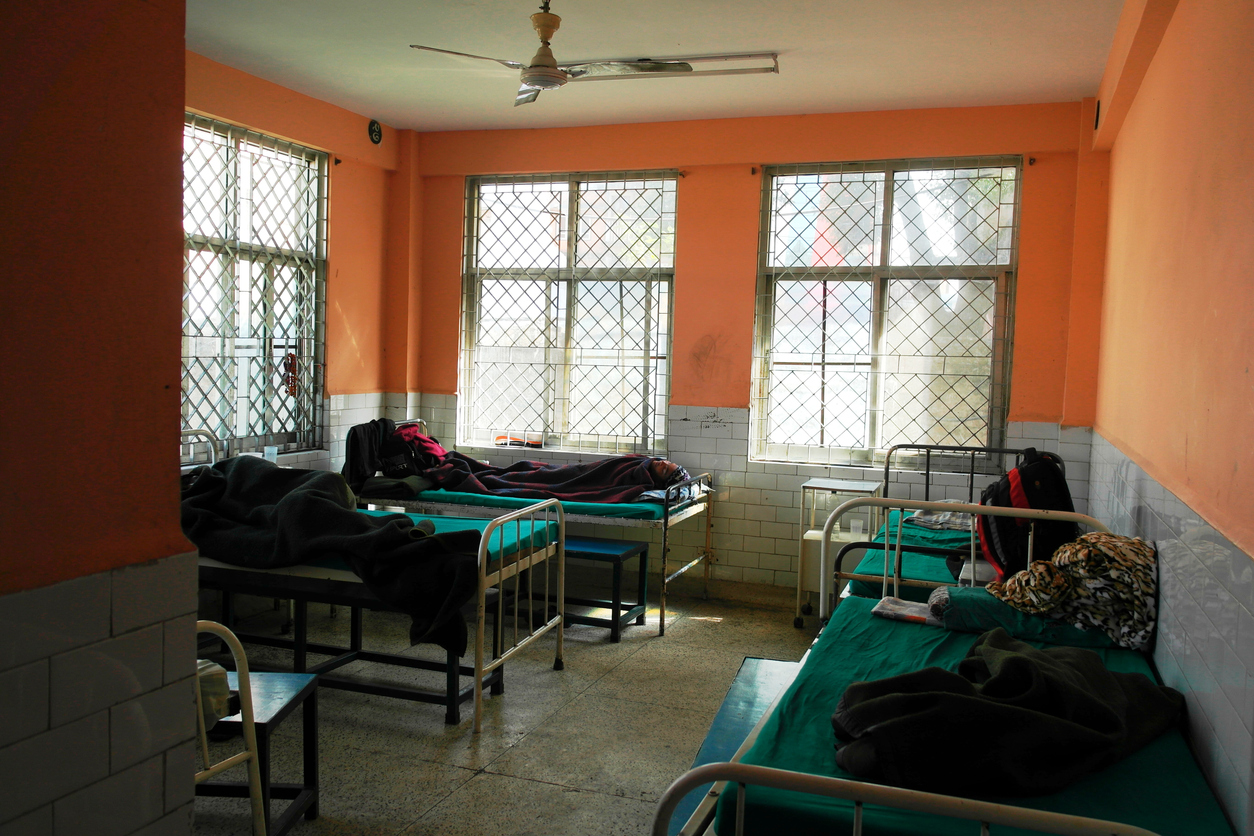
- Home
- News
- Analysis
- States
- Perspective
- Videos
- Education
- Entertainment
- Elections
- Sports
- Features
- Health
- Budget 2024-25
- Business
- Series
- Bishnoi's Men
- NEET TANGLE
- Economy Series
- Earth Day
- Kashmir’s Frozen Turbulence
- India@75
- The legend of Ramjanmabhoomi
- Liberalisation@30
- How to tame a dragon
- Celebrating biodiversity
- Farm Matters
- 50 days of solitude
- Bringing Migrants Home
- Budget 2020
- Jharkhand Votes
- The Federal Investigates
- The Federal Impact
- Vanishing Sand
- Gandhi @ 150
- Andhra Today
- Field report
- Operation Gulmarg
- Pandemic @1 Mn in India
- The Federal Year-End
- The Zero Year
- Premium
- Science
- Brand studio
- Newsletter
- Home
- NewsNews
- Analysis
- StatesStates
- PerspectivePerspective
- VideosVideos
- Entertainment
- ElectionsElections
- Sports
- Features
- BusinessBusiness
- Premium
- Loading...
Premium - India-Canada ties

What it means to treat mental illness amid COVID-19
The wards in the Institute of Mental Health, Chennai, for the mentally challenged are a revelation, that challenge general perceptions about people with mental issues

The rooms are not dark and dingy or isolated, like they show in the movies, but neat, tidy and well maintained where not a single person is allowed without a mask. The wards in the Institute of Mental Health, Chennai, for the mentally challenged are a revelation, that challenge general perceptions about people with mental issues. “It is not difficult to make mentally challenged...
The rooms are not dark and dingy or isolated, like they show in the movies, but neat, tidy and well maintained where not a single person is allowed without a mask.
The wards in the Institute of Mental Health, Chennai, for the mentally challenged are a revelation, that challenge general perceptions about people with mental issues.
“It is not difficult to make mentally challenged people understand the seriousness and insist on wearing masks rather than other people,” says Dr G Vanishree, assistant professor at the institute.
“For the mentally challenged people, I cannot explain things scientifically. So, if I treat them politely and tell them it is good to wear masks and wash hands frequently, they will listen. And if I demonstrate before them frequently, they will follow it. It is that simple,” she says.
A surprise in store
While the police, healthcare personnel and governments across the country worked hard to ensure social distancing, wearing of masks and maintaining hygiene among the general public, but failed, the ease with which officials and workers at the mental health institute achieved this might come as a surprise for many.
“It is not that everybody at the IMH doesn’t understand what we say,” says Dr Kavitha. “It differs from patient to patient and only those with severe mental illness would not understand, but they too will follow once we teach them. For patients suffering from depression, anxiety disorder and bipolar disorder, they would have a better sense and understand and follow.”
Even if they found it difficult to make some inmates follow the procedures, Dr Kavitha and other doctors like her had a solution.
“There are few working patients, who have been in IMH for years, and they are very friendly with patients having moderate and severe mental illness. So, we ask those working patients to insist others on washing hands and wearing masks. And they respond to it and follow them,” she says.
IMH Director Dr Poorna Chandrika says she was surprised at a patient washing his hands on his own.
“The patient has moderate mental illness and we told him that washing hands frequently is very important to be away from the disease. It has registered in his mind deeply and he washes his hand once every three or four hours. On watching him, other patients in the ward too are washing hands frequently,” she says.
She recalls that in the initial days of the pandemic, despite insisting on wearing masks, some patients would not do so.
“But when we told them that we would talk to them and listen to them only if they wear a mask, they immediately responded. While coming to meet us, if they had missed their mask at their ward, they would tell us that they have kept it in the ward and would ask for a mask to wear before talking to us,” she adds.
Dr Poorna strongly believes that only if they demonstrate it, would the inmates follow.
“So I strongly insist all the working staff, including the doctors, nurses and ward workers to wear the mask compulsorily and wash hands frequently,” she says.
Unfortunate COVID-19 cases
However, despite taking precautionary measures and ensuring inmates followed the hygiene protocol, many were found to have contracted COVID-19. The cases came to light after Madras High Court on July 16 directed the state government to test all the inmates, based on a plea filed by Tamil Nadu Association for Rights of All Types of Differently Abled and Caregivers (TARATDAC).
According to sources at IMH, of the 1,200 people tested, including the 700 inmates, 51 people, including 31 inmates, tested positive for COVID-19.

This could be attributed to the fact that the institute sees about 500 people — nurses, sanitary workers, and other frontline workers and not NGOs, therapists, etc. — entering the institute on a daily basis to aid the hospital’s work.
Doctors and hospital staff say they take extra care while treating inmates with COVID-19.
“The patients can’t tell what they undergo but as the ward duty doctors and nurses know the inmates well, any change in their routine is easily identified. Even if they are not COVID-19 positive, and are found with any symptoms including cold, they will be isolated from the rest of the inmates and treated,” says Dr Vanishree.
Dr Poorna says that they never felt uncomfortable with quarantine norms or procedures.
“In the initial days, as there was a shortage of masks, we made cloth masks with the help of our working inmates who have improved over the years, and were using it.”
She points to the brighter side of things. “The first COVID-19 case (in the hospital) was reported three months after the virus outbreak in the city. At a time when 500 staff are coming to the hospital from outside, we feel this itself as an achievement as we had no cases in the first three months,” she says.
Distancing physically can get emotional
While washing hands and wearing masks could be enforced, maintaining individual distancing between the inmates as well as between inmates and staff seems to have been a tough job.
A ward staff member says that it is not possible to stop touching them completely, and all of a sudden.
“They are used to it as it is part of helping them. They are more friendly to us than the doctors because we are here in the ward almost all the time. Also, sometimes, practically it becomes impossible to maintain distance, as we have to wash hands for a few, and help a few others dress,” he says on condition of anonymity.
“It is an emotional trauma. In the initial days, I tried my best to stay away from them, but they need love and affection. So, I cannot move away from them and ask them every time to maintain distance. How will I ask them to stand away from me?” asks the worker.
Dr Vanishree accepts that the frontline workers in the ward will have to touch the patients and might come in close contact with the inmates. “But we have asked them not to remove their masks. Also, before and after attending every patient, we have asked the frontline workers to wash their hands,” she says.
“Apart from that, the patients understand that the doctors are there to treat them and that they should not disturb the doctors. They do not come close to the doctors like they do with the nurses and sanitary workers in their ward.”
Dr Kavitha feels that of the 100 patients, 10 patients recognise the doctors and become friendly with them. “But these 10 patients might have improved over a period of time and they understand the seriousness. So, if we tell them to maintain individual distancing, they will follow it,” she says.
A different experience
COVID-19 pandemic seems to have revealed a different side of the mentally ill, that goes against all general perceptions.
Dr Vanishree says that she was surprised that not even a single patient showed discomfort while taking swab samples for the COVID-19 test.
“I felt very uncomfortable when they took samples from my nose. But none of the 700 patients showed any discomfort or complained or behaved rudely to the healthcare personnel. It was really shocking to me,” Dr Vanishree says.
A few sanitary workers whom The Federal spoke to also expressed that they were initially skeptical about insisting on basic cleanliness habits, but were shocked at their positive response.
Dr Poorna says they respond and respect the doctors even though they may not understand the technical aspects of the pandemic or the disease.
“Their ability was known during these crisis days,” she says, adding that “Whatever hurdles or difficulties may come our way, they make our day.”

